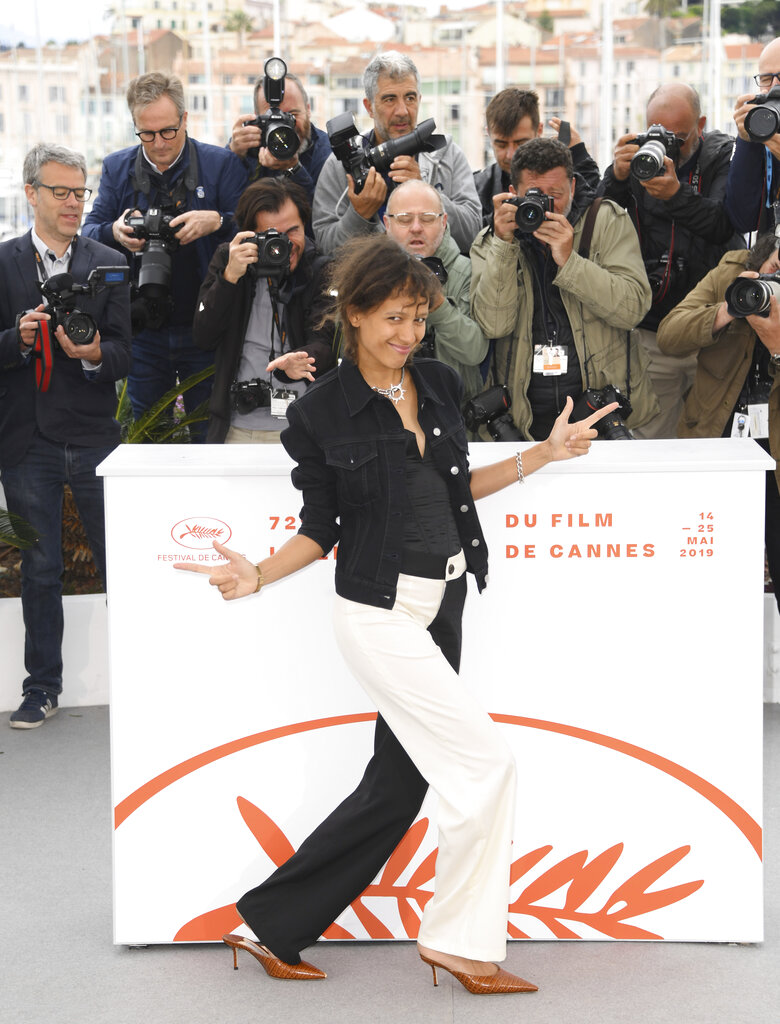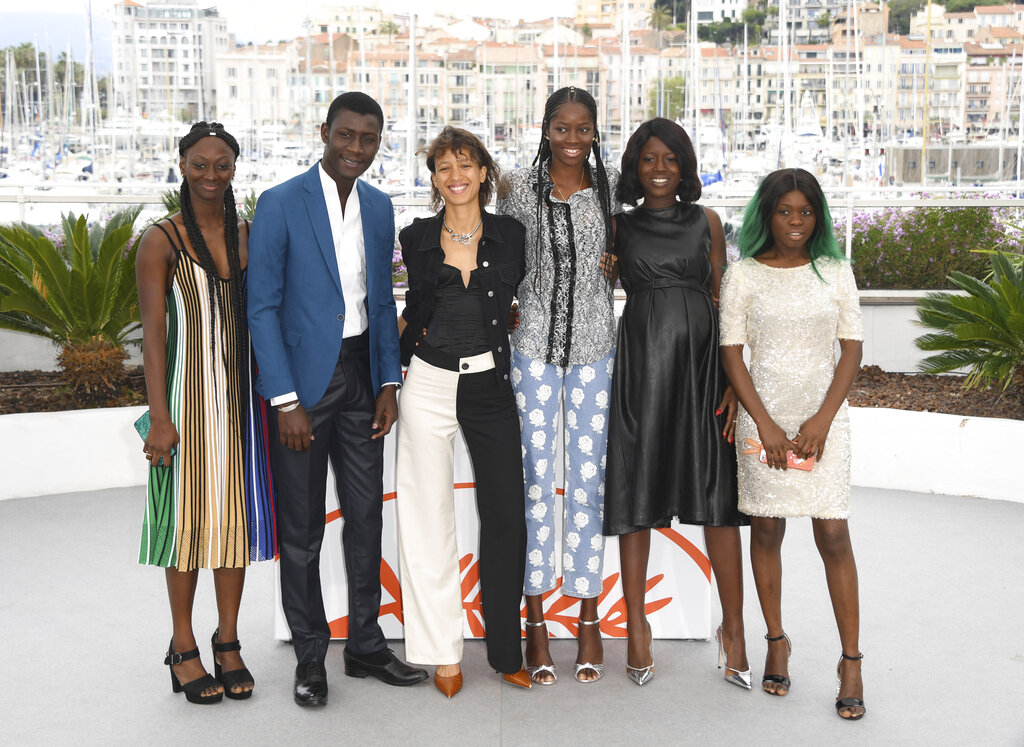Mati Diop on being the first black female director in Cannes
CANNES, France — Mati Diop was initially disappointed when she, by reading a news article, discovered that she was the first black female filmmaker in the Cannes Film Festival’s prestigious competition in its 72-year history.

Director Mati Diop poses for photographers at the photo call for the film ‘Atlantique’ at the 72nd international film festival, Cannes, southern France, Friday, May 17, 2019. Image: Arthur Mola/Invision/AP
“I hadn’t realized myself. I didn’t know,” the 36-year-old French-Senegalese filmmaker said in an interview. “My first reaction is that I found it quite sad. I thought, ‘Oh, is it?’ So there’s still a long way to go before it becomes something completely natural and normal and something that’s not noticeable, the fact that I’m a black woman.”
Diop’s milestone has been enthusiastically celebrated in Cannes, where she on Thursday premiered her feature film debut “Atlantics.” The film, which is competing for Cannes’ top honor, the Palme d’Or, focuses on the women left behind in Dakar when many of the local young men flee Senegal for Spain by boat, unable to make a living at home.

Actors Aminata Kane, from left, Amadou Mbow, director Mati Diop, actors Mame Sane, Nicole Sougou, and Mariama Gassama pose for photographers at the photo call for the film ‘Atlantique’ at the 72nd international film festival, Cannes, southern France, Friday, May 17, 2019. Image: Arthur Mola/Invision/AP
But for Diop, her unique position in Cannes is a perplexing distinction.
“What I realized, and I’m not used to this feeling, is that it happened to me. I’m not responsible for that. I haven’t done anything specific for that. I’ve just made the film I wanted to make,” said Diop. “I’m not embarrassed. I’m not proud. I just take it as a pure fact.”
“Atlantics” marks Diop’s first feature as a director, but she’s previously made five shorts, one of which was the basis for her Cannes entry. That 2009 short bore the same title but a different perspective, concentrating on a young man forced into a dangerous migration.
Article continues after this advertisement“I was myself a witness of the situation, quite a close witness,” said the Paris-based Diop, who 10 years ago visited her family in Senegal. “It was 10 years ago that there was this whole wave of a young generation who were trying to flee. They went toward Spain and many of them disappeared. I needed to tell this story. I had already dealt with it in my short but I felt I wasn’t done with it.”
Article continues after this advertisementDiop links her reconnection with Senegal to her birth as a filmmaker. She is the daughter of Senegalese jazz musician Wasis Diop and niece of the pioneering Senegalese director Djibril Diop Mambéty (“Touki Bouki”). Diop’s 2013 documentary “A Thousand Suns” examined her uncle’s legacy and his 1972 film, considered a cornerstone of African cinema.
Diop has gradually formed her own aesthetic, one that sometimes bleeds documentary and fiction. A friend called “Atlantique” ”a fantasy documentary.” Diop prefers “a contemplative action film.”
“It was written as a fiction but I don’t make this limit. I don’t think it’s our business as filmmakers to draw these limits between documentaries and fiction. When you have the desire to make a film, you make a film,” she says. “The reality that I described is so anchored in social and political and economic terms, of course there is a real texture and embodiment of the subject and my approach it in it that can be documentary-like.”
“Atlantics” is also dazzlingly otherworldly, with waves of sorrow washing up on Dakar shores. Mama Sane plays Ada, whose boyfriend, along with his shipmates, vanish at sea. After, a mysterious specter haunts many of those who drove the young men away. Diop compares the tale to “Ulysses.”
“It’s a misunderstanding to consider Penelope (of “Ulysses”) a passive figure who’s just waiting for her beloved to come back,” said Diop. “What I found interesting is that although these women are waiting for these men to come, their life is transformed by the experience of this loss. It’s how these women can reconquer their own life and reach a certain level of emancipation through the loss they experience.”
Diop has gradually come to terms with her history-making status in Cannes. On Friday, she told reporters that maybe she is a little proud, and noted that Jordan Peele’s films (“Us,” ”Get Out”) have been enthralling for her. In the interview, she cited Sofia Coppola’s “The Virgin Suicides” as a guidepost to her.
“I must acknowledge that myself, when I was growing up, I didn’t have a black or mixed-race filmmaker who would have been inspirational to me,” said Diop. “It’s important to have these kinds of figures. So if I may someday become a kind of figure like to for younger women, then that would be wonderful. So I think it does matter.” NVG
RELATED STORIES:
Tilda Swinton relishes her samurai turn in ‘Dead Don’t Die’